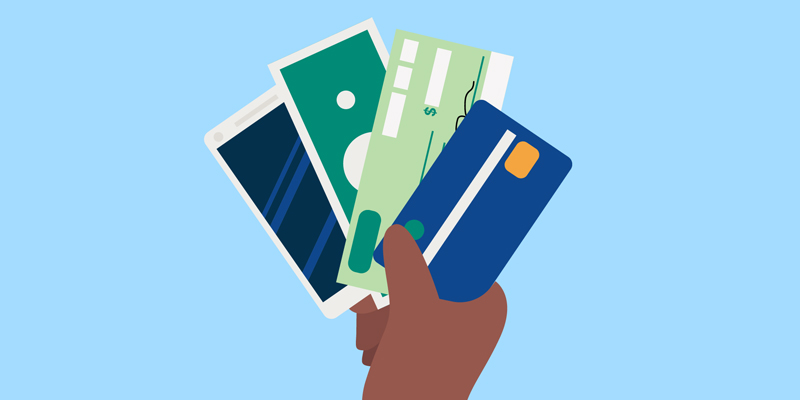Contents
Client Credit
“The client isn’t always right.” In the legal profession, we say this to remind ourselves that clients may have unrealistic expectations or misguided ideas about their own cases. This can be frustrating for lawyers. What’s more frustrating is when clients are not truthful with us about whether they can pay you or not—which is why credit checks are so important in lawyer-client relationships.
What Client Checks Can Do
1. Help Lawyers Serve Their Clients Better
If you’re a lawyer and your client has bad credit, it may be difficult to help them. That’s because many people with poor credit histories are more likely to be in financial trouble than those who have good scores. If your client has bad credit, they might not be able to get a loan or even rent an apartment without paying extra money in advance; this could make it hard for you as their attorney when trying to resolve their legal dispute.
2. Save Law Firms Time and Money
You’ve probably heard that credit checks can be a valuable tool when screening potential clients. But what exactly are the benefits?
- Time savings: A credit check takes just minutes to complete and can help you avoid wasting hours on cases that have no chance of success.
- Money savings: If your client doesn’t have enough money for your services, unless you do pro bono work, it’s best to move on. Credit checks will show whether or not the client has access to funds before you take on their case and begin working with them in earnest. This way, you won’t waste time or energy on someone who won’t be able to pay for legal representation in full. It also helps protect against fraud; if someone lies about their finances during the initial interview process (which happens more often than you might think), a quick check will reveal everything right away.
3. Credit Checks Show a Lawyer’s Interest in Serving the Client
Credit checks are an important part of the Lawyer-Client Relationship. They show that you are interested in your client’s financial situation and their ability to pay for legal services. Credit checks also show that you care about the quality of their credit score, which can affect many aspects of their lives, including whether they get approved for loans or mortgages.
Client Credit Check Disclosures
Law firms should encourage client credit check disclosures during intake procedures. When clients enter into lawyer-client relationships, they should be encouraged to disclose their credit score and history. Lawyers can ask the client questions about their credit score via an Intake Form, such as:
- What is your current FICO® Score?
- How long have you had this score?
- What was last year’s highest/lowest monthly payment?
The Importance of Credit Checks
Credit checks are an important tool for lawyers to use when evaluating their clients, as well as their employees and suppliers. They can help you make better decisions about people you work with and trust, which will improve the overall quality of your business.
- Clients: It’s important that when you accept new clients, they’re able to pay their bills on time and in full. If a client has poor credit history (or no credit history), it may indicate that they might not be reliable or trustworthy enough to hire your services again in the future, and even if they do pay off their debt eventually, there could be other issues at play here too! It’s also worth noting that some companies refuse work from law firms if those firms have any unpaid debts or judgments against them; so having good financial management practices within your firm will prevent this from happening!
- Staff: Having good employee policies and professional Staff Management can attract high quality talent into your company while keeping low quality employees out by making sure everyone meets certain standards before being hired onto staff positions–credit checks are part of this process because having good financial habits reflects positively upon one’s character overall which helps determine whether someone should be allowed access inside our firm’s doors.”
How Can Lawyers Benefit From Checking Credit?
As a lawyer, you have to make decisions about your clients. You need to know if they’re likely to pay their bills on time and in full. To do that, you need information about their credit history.
A good credit report can tell you:
- Whether or not the client has any judgments against them (which could indicate a pattern of non-payment)
- How many accounts are open with negative balances (which might indicate an inability or unwillingness to pay)
- How long ago each account was opened (if it’s been over 7 years since an account was opened, there may be no longer any debt associated with it).
Well-Informed Decision-Making
A credit check can help you make a more informed decision about working with clients. Credit scores, payment history and other factors can be used to determine if someone is trustworthy or not.
Credit checks are part of due diligence when determining if you want to represent someone as their lawyer, especially if they have been sued or charged with a crime. It’s also important for lawyers to know whether or not their clients are financially stable enough to pay for legal services before agreeing on a fee structure with them.
Credit checks help lawyers provide better service by making sure that each case has the proper funding behind it so there aren’t any surprises down the road when payments come due — and they save law firms time and money by weeding out unsuitable clients before they become part of the team!
Conclusion
We hope this article has helped you understand the importance of credit checks in lawyer-client relationships. Credit checks can save law firms time and money, but more importantly they show a lawyer’s interest in serving the client so it helps you make a good name for yourself!
FAQ
1. What Other Information Should I Be Looking For?
In addition to checking credit scores, payment history and other factors can help you make a more informed decision about working with clients. You should also check for bankruptcy filings, liens and judgments.
2.Is RunSensible useful in client credit checking?
RunSensible can be of use when an ex-client or a friend to a client contacts you.
3. How can RunSensible help in terms of client credit checking?
RunSensible offers users a safe, cloud-based environment to store client information from case details to payment information, which gives you more insight towards their credit. We recommend trying our Free Trial version to get an idea of how the software works.
Disclaimer: The content provided on this blog is for informational purposes only and does not constitute legal, financial, or professional advice.







